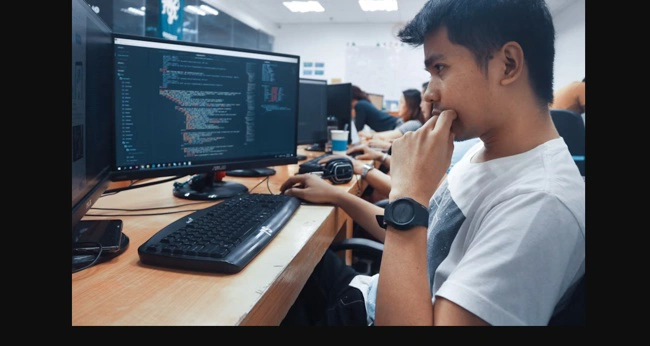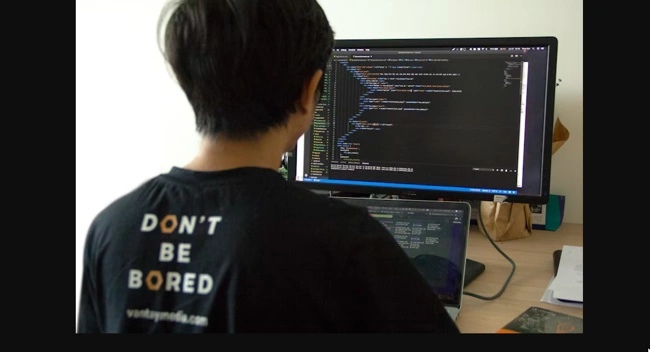The Benefits of Remote Coding Lessons
The digital revolution has reshaped our world, making proficiency in coding a sought-after skill across virtually all industries. From developing groundbreaking software to analyzing complex data, coding is the language of innovation. As the demand for skilled developers continues to soar, individuals from all walks of life are looking to acquire this invaluable expertise. Historically, learning to code often involved strict classroom schedules and geographical limitations, but a new era of education has emerged: remote coding lessons.
This shift to virtual learning environments has democratized access to coding education, making it more flexible, accessible, and often more personalized than traditional methods. The benefits of remote coding lessons extend far beyond mere convenience, offering a unique blend of advantages that cater to diverse learning styles and life circumstances. Whether you're a busy professional looking to upskill, a student seeking supplemental education, or someone simply exploring a new passion, remote coding lessons provide a pathway to success that aligns with the demands of modern life.
In this comprehensive article, we will delve into the multifaceted benefits of remote coding lessons, exploring how they offer unparalleled flexibility, foster personalized learning experiences, provide access to a global network of expertise, and present a cost-effective alternative to traditional education. We will examine how these advantages not only make learning to code more attainable but also contribute to a richer, more effective educational journey, ultimately preparing individuals for thriving careers in the ever-evolving tech landscape. Read on to discover how remote coding lessons can unlock your full coding potential.
The Benefits of Remote Coding Lessons: Flexibility and Accessibility
One of the most compelling benefits of remote coding lessons is the unparalleled flexibility they offer. Gone are the days when learning was confined to rigid schedules and physical classrooms. Remote learning empowers individuals to tailor their education around their existing commitments, whether those include work, family responsibilities, or other academic pursuits. This adaptability is a game-changer for many aspiring coders.

Consider the traditional classroom setting: fixed class times, daily commutes, and the need to be physically present at a specific location. For individuals with demanding jobs, unconventional work hours, or those residing in remote areas, these logistical hurdles can be insurmountable. Remote coding lessons, however, dismantle these barriers. With access to course materials and live sessions from anywhere with an internet connection, learners can choose when and where they engage with their studies. This means a parent can attend a coding class after their children are asleep, a shift worker can learn during their off-hours, or someone in a rural village can access top-tier instruction that would otherwise be unavailable.
The flexibility extends beyond just scheduling. Many remote programs offer self-paced learning modules, allowing students to revisit complex concepts as many times as needed, or accelerate through topics they quickly grasp. This personalized pacing ensures that no one is left behind or held back, optimizing the learning experience for individual comprehension. This inherent adaptability makes remote coding education a truly inclusive option, opening doors to a broader demographic of learners and fostering a more diverse talent pool in the tech industry.
Enhanced Learning Environments and Personalized Attention
Beyond flexibility, remote coding lessons often cultivate enhanced learning environments that can surprisingly offer more personalized attention than large, in-person classes. While traditional classrooms might seem to offer direct interaction, the reality can be that instructors are stretched thin across many students. In contrast, many remote platforms are designed with features that facilitate individual learning and targeted feedback.

Here's how remote coding lessons can provide a more personalized approach:
- Asynchronous Learning Resources: Most online courses provide a wealth of pre-recorded lectures, interactive coding exercises, and digital textbooks that students can access at their convenience. This allows learners to absorb information at their optimal pace, reviewing challenging concepts multiple times or skipping ahead if they already understand a topic.
- Dedicated Q&A Forums and Direct Messaging: Instead of a brief moment to ask a question in a crowded classroom, remote learning often provides dedicated online forums or direct messaging channels where students can pose questions to instructors and teaching assistants. This allows for more thoughtful responses and a written record of explanations that can be revisited later.
- One-on-One Mentorship and Code Reviews: Many high-quality remote coding programs incorporate elements of one-on-one mentorship or personalized code reviews. Instructors can dedicate specific time slots to review a student's code, provide detailed feedback, and offer tailored guidance on areas for improvement. This level of individualized attention is often difficult to replicate in a large classroom setting.
- Adaptive Learning Paths: Some advanced online platforms utilize artificial intelligence (AI) to create adaptive learning paths, adjusting the curriculum and exercises based on a student's progress and areas of struggle. This ensures that the content is always relevant and challenging, preventing boredom or overwhelming frustration.
This focus on individualized learning caters to different learning styles. Visual learners benefit from video tutorials, auditory learners from lectures, and kinesthetic learners from hands-on coding exercises. The ability to pause, rewind, and re-engage with content on demand fosters a deeper understanding and retention of complex coding concepts.
Access to Global Expertise and Diverse Communities
Another significant advantage among the benefits of remote coding lessons is the unparalleled access they provide to a global network of instructors, mentors, and fellow learners. Traditional educational institutions are often limited by their geographical location, meaning students are restricted to the expertise available within their region. Remote learning shatters these geographical boundaries.

Imagine learning Python from a leading data scientist based in Silicon Valley, or understanding web development from a seasoned freelancer in London, all from the comfort of your home in Nairobi. Remote coding platforms bring the world's best educators directly to you, offering a diversity of perspectives, teaching styles, and industry insights that would be impossible to access otherwise. This global reach also means that niche or highly specialized coding topics, which might not be offered locally, are readily available online.
- Furthermore, remote learning environments foster vibrant and diverse online communities. Students connect with peers from different countries, cultures, and professional backgrounds. This cross-cultural interaction enriches the learning experience in several ways:
- Diverse Problem-Solving Approaches: Working on collaborative projects with individuals from various backgrounds exposes learners to different problem-solving methodologies and perspectives, enhancing their critical thinking skills.
- Networking Opportunities: The connections made in online coding communities can be invaluable for future career prospects, leading to collaborations, job referrals, and mentorship opportunities.
- Exposure to Real-World Scenarios: Interacting with a global community means encountering a wider range of real-world coding challenges and industry applications, broadening a student's understanding of the field.
- 24/7 Support: With learners and instructors across different time zones, there's often someone available to answer questions or offer assistance, creating a continuous support system.
This global connectivity not only enhances the learning process but also prepares individuals for the increasingly interconnected and globalized nature of the tech industry.
Cost-Effectiveness and Resource Optimization
The financial aspect is a considerable factor when considering education, and the benefits of remote coding lessons shine brightly in terms of cost-effectiveness and resource optimization. Traditional in-person coding bootcamps or university programs can be prohibitively expensive, encompassing not just tuition fees but also a myriad of hidden costs.
Let's break down the financial advantages of remote coding:
- Reduced Tuition Fees: Online coding courses often have significantly lower tuition fees compared to their in-person counterparts. This is largely due to reduced overhead costs for the educational providers, who don't need to maintain physical classrooms, extensive facilities, or large on-site staff.
- Elimination of Commuting Costs: Daily commutes to a physical institution add up quickly, factoring in fuel, public transport fares, and vehicle maintenance. Remote learning completely eliminates these expenses.
- No Relocation or Accommodation Expenses: For students considering a coding bootcamp in a different city or country, relocation costs, rent, and living expenses can be astronomical. Remote lessons allow learners to stay in their current location, saving substantial amounts of money.
- Flexible Payment Options and Free Resources: Many online platforms offer flexible payment plans, subscription models, or even entirely free courses (e.g., through platforms like freeCodeCamp or Khan Academy). This makes coding education accessible to individuals regardless of their financial background.
- Optimized Time Investment: Time is a valuable resource. By eliminating commute times and allowing for flexible scheduling, remote coding lessons enable learners to optimize their time, potentially allowing them to continue working or managing other responsibilities while pursuing their education. This indirect cost saving is often overlooked but can be highly significant.
To illustrate the potential cost savings, consider the following table:
| Expense Category | Traditional In-Person Coding Bootcamp (Estimated Annual Cost) | Remote Coding Lesson Program (Estimated Annual Cost) | Potential Savings (Annual) |
| Tuition | $10,000 - $25,000 | $500 - $10,000 | $9,500 - $15,000 |
| Accommodation | $8,000 - $15,000 | $0 | $8,000 - $15,000 |
| Commuting/Transport | $1,000 - $3,000 | $0 | $1,000 - $3,000 |
| Course Materials | $500 - $1,500 | $0 - $500 (often digital/included) | $500 - $1,000 |
| Total Estimated | $19,500 - $44,500 | $500 - $10,500 | $19,000 - $34,000 |
Note: These figures are estimates and can vary widely based on location, program intensity, and individual choices.
The significant financial relief offered by remote coding lessons makes a high-demand skill like coding accessible to a much wider audience, fostering economic mobility and creating a more inclusive tech workforce.
Developing Self-Discipline and Problem-Solving Skills
While the flexibility of remote learning is a major draw, it also implicitly fosters the development of crucial soft skills, particularly self-discipline and enhanced problem-solving abilities. In a remote setting, learners are largely responsible for managing their own time, staying motivated, and seeking out solutions independently.

This autonomous learning environment requires a high degree of self-discipline. There's no physical presence of an instructor to prompt engagement, nor are there fixed class schedules to enforce attendance. Students must set their own learning goals, create their study routines, and hold themselves accountable for progress. This cultivation of self-discipline is an invaluable life skill that extends far beyond coding, benefiting individuals in all aspects of their professional and personal lives. Employers highly value self-motivated individuals who can work independently, and remote coding lessons provide an excellent training ground for this trait.
Furthermore, the nature of coding itself, combined with the remote learning environment, significantly hones problem-solving skills. When encountering a coding bug or a difficult concept without immediate in-person assistance, learners are often compelled to:
- Troubleshoot independently: This involves systematically identifying the source of an error, breaking down complex problems into smaller, manageable parts, and testing different solutions.
- Utilize online resources effectively: Becoming adept at searching documentation, developer forums, and online tutorials for solutions. This research skill is critical for any programmer.
- Persistence and resilience: Coding inherently involves trial and error. Remote learners quickly learn the importance of perseverance, debugging, and not giving up when faced with challenges. This builds resilience, a key trait for success in any technical field.
In essence, remote coding lessons not only teach the syntax and logic of programming but also implicitly develop the mindset of an independent problem-solver – a highly sought-after attribute in the fast-paced world of technology.
Continuous Learning and Future-Proofing Skills
The tech industry is characterized by rapid change. New languages, frameworks, and tools emerge constantly, making continuous learning a necessity for any successful developer. One of the less obvious, but profound, benefits of remote coding lessons is how they instill and facilitate this mindset of lifelong learning, ultimately future-proofing a learner's skills.
Remote learning platforms are inherently dynamic. Curricula can be updated swiftly to reflect the latest industry trends and technological advancements, ensuring that students are always learning the most relevant skills. Unlike static textbooks, online resources are constantly evolving. This exposure to an ever-updating learning environment prepares individuals for the reality of a tech career, where adapting to new technologies is a constant requirement.
Moreover, the experience of learning remotely familiarizes individuals with the tools and methodologies used for professional development in the modern workforce. Many companies now operate with remote or hybrid teams, and the ability to collaborate, communicate, and learn effectively in a virtual environment is a highly valued skill. By engaging in remote coding lessons, students are not just learning to code; they are also:
- Becoming digitally literate: Gaining proficiency with online collaboration tools, virtual meeting platforms, and cloud-based development environments.
- Developing strong communication skills in a digital context: Learning to articulate problems clearly in writing, participate in online discussions, and present their work virtually.
- Cultivating independent learning habits: The self-directed nature of remote lessons encourages proactive learning, a habit that is essential for staying current in a rapidly changing industry.
Therefore, remote coding lessons go beyond teaching technical skills; they equip individuals with the adaptability, digital fluency, and continuous learning mindset necessary to thrive in the future of work.
Conclusion
The landscape of education is continuously evolving, and remote coding lessons stand out as a transformative force, offering a multitude of compelling advantages for aspiring and current developers alike. From the unparalleled flexibility that empowers individuals to learn on their own terms, to the enhanced access to global expertise and diverse learning communities, the benefits of remote coding lessons are profound and far-reaching. They present a cost-effective pathway to acquiring critical skills, fostering self-discipline, and honing essential problem-solving abilities. Furthermore, by immersing learners in a dynamic digital environment, these lessons inherently cultivate the continuous learning mindset vital for success in the ever-evolving tech industry.
Embracing remote coding education is not just about convenience; it's about unlocking potential, democratizing access to high-quality instruction, and equipping individuals with the future-proof skills needed to thrive in a world increasingly driven by technology. If you're ready to embark on a rewarding journey into the world of programming, explore the vast array of remote coding lessons available today. Your future in tech awaits!









